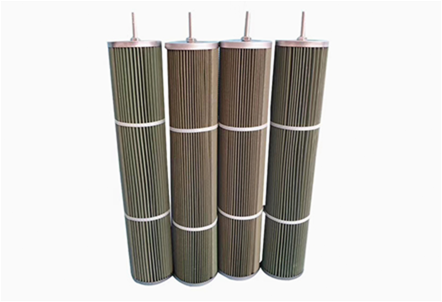 Tel:
+8615930870079
Tel:
+8615930870079
Αυγ . 12, 2024 14:32 Back to list
Enhancing Performance and Efficiency of Gas Turbine Air Intake Filters for Optimal Operation
The Importance of Air Intake Filters in Gas Turbines
Gas turbines are a pivotal component in various industries, ranging from power generation to aviation. As with any combustion system, the efficiency and longevity of gas turbines heavily depend on the quality of air entering the combustion chamber. This makes the air intake filter a crucial element in the operational performance of gas turbines.
Understanding Gas Turbines
Gas turbines operate on the principle of drawing in air, compressing it, mixing it with fuel, and igniting the mixture to produce high-velocity exhaust gases. These gases then drive a turbine, which can be used to generate electricity or propel an aircraft. The efficiency of this process can be significantly impacted by the quality of the air that is drawn in. Contaminants such as dust, dirt, pollen, and other particles can hinder performance, reduce efficiency, and cause damage over time.
The Role of Air Intake Filters
Air intake filters serve as the first line of defense against these contaminants. By trapping unwanted particles before they enter the gas turbine, filters help ensure that the air supply is clean and free from debris. This is essential not only for maintaining efficiency but also for extending the lifespan of the turbine components.
1. Protection of Turbine Components The blades and other components of gas turbines are precision-engineered for optimal performance. Contaminants can cause erosion or corrosion, leading to premature wear and potentially catastrophic failures. Effective air intake filters mitigate this risk, maintaining the structural integrity of these critical components.
2. Maintaining Efficiency Clean air is essential for optimal combustion. Contaminated air can result in incomplete combustion, leading to higher emissions and reduced power output. By ensuring that the air entering the turbine is free from harmful particles, filters help maintain maximum efficiency and lower operational costs.
gas turbine air intake filter

3. Reducing Maintenance Costs Regular maintenance and replacement of turbine components due to contamination can be prohibitively expensive. By utilizing high-quality air intake filters, operators can significantly reduce the frequency of maintenance interventions, leading to lower overall maintenance costs.
4. Environmental Compliance Many industries face strict regulations regarding emissions and environmental impact. Efficient air intake filters not only reduce operational costs but also help companies comply with environmental standards by ensuring that emissions remain within acceptable limits.
Types of Air Intake Filters
Air intake filters come in various types, each suited for different operational requirements. Some common types include
- Dry Filters These are typically made from synthetic or cellulose materials that trap particles as air passes through. They are often used in less dusty environments. - Wet (oil) Filters These filters use oil to capture dust and particulates. They are beneficial in environments with a high concentration of contaminants, as they can trap a larger volume of particles.
- HEPA Filters High-Efficiency Particulate Air (HEPA) filters provide a higher level of filtration and can remove up to 99.97% of particles larger than 0.3 microns, making them ideal for sensitive applications.
Conclusion
In conclusion, air intake filters are critical components of gas turbine systems that play an essential role in protecting the turbine from contaminants, maintaining operational efficiency, reducing maintenance costs, and ensuring environmental compliance. As industries continue to prioritize efficiency and sustainability, the importance of high-quality air intake filters in gas turbines will only increase. Investments in advanced filtration technology can yield significant returns, ultimately leading to enhanced performance and reduced operational risks.
-
Nano Fiber Technology: Revolutionizing Cartridge Dust Collector FiltersNewsAug.06,2025
-
How Activated Carbon Air Cartridges Eliminate OdorsNewsAug.06,2025
-
Dust Filter Cartridge Handling Fine Particulate MatterNewsAug.06,2025
-
Cartridge Dust Collector Filter for Welding Fume ExtractionNewsAug.06,2025
-
Activated Carbon Filter Cartridge Effectiveness Against VOCsNewsAug.06,2025
-
Activated Carbon Air Filter Cartridge Benefits ExplainedNewsAug.06,2025

 Email:
Email:





